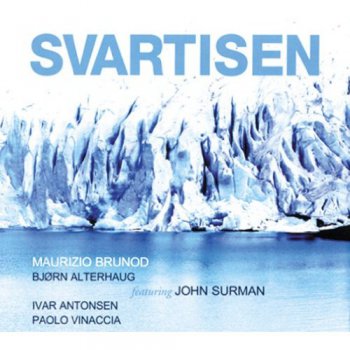Battle Beast - Steelbound 2025
Исполнитель: Battle Beast Альбом: Steelbound Жанр: Heavy Metal, Power Metal Год: 2025 Страна: Finland (Helsinki, Uusimaa) Лейбл: Nuclear Blast Формат: FLAC (tracks) Official DR value: DR6 Разрядность: 24bit / 44.1kHz Stereo Размер: 466 MB Инфо: bandcamp Залито на: XFile (3% восстановление) «Exclusive for Lossless-Galaxy»

Battle Beast - Steelbound 2025
Исполнитель: Battle Beast Альбом: Steelbound Жанр: Heavy Metal, Power Metal Год: 2025 Страна: Finland (Helsinki, Uusimaa) Лейбл: Nuclear Blast Формат: FLAC (tracks) Official DR value: DR6 Разрядность: 24bit / 44.1kHz Stereo Размер: 466 MB Инфо: bandcamp Залито на: XFile (3% восстановление) «Exclusive for Lossless-Galaxy»
17 10, 2025
Sabaton - Legends 2025
Исполнитель: Sabaton Альбом: Legends Жанр: Power Metal Год: 2025 Страна: Sweden (Falun, Dalarna) Лейбл: Better Noise Music Формат: FLAC (tracks) Official DR value: DR6 Разрядность: 16bit / 44.1kHz Stereo Размер: 335 MB Инфо: bandcamp Залито на: XFile (3% восстановление) «Exclusive for Lossless-Galaxy»
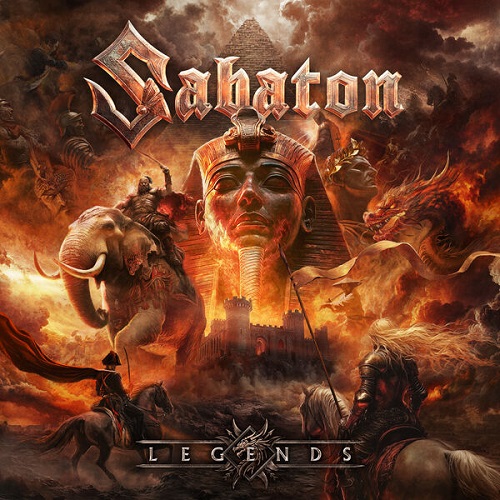
Sabaton - Legends 2025
Исполнитель: Sabaton Альбом: Legends Жанр: Power Metal Год: 2025 Страна: Sweden (Falun, Dalarna) Лейбл: Better Noise Music Формат: FLAC (tracks) Official DR value: DR6 Разрядность: 16bit / 44.1kHz Stereo Размер: 335 MB Инфо: bandcamp Залито на: XFile (3% восстановление) «Exclusive for Lossless-Galaxy»
17 10, 2025
David Gilmour - The Luck And Strange Concert 2025
Исполнитель: David Gilmour Альбом: The Luck And Strange Concert Жанр: Progressive Rock, Psychedelic Rock Год: 2025 Страна: UK (Cambridge) Лейбл: Legacy Recordings Формат: FLAC (tracks) Official DR value: DR8 Разрядность: 24bit / 96kHz Stereo Размер: 2,6 GB Инфо: wiki Залито на: XFile (tracks) «Exclusive for Lossless-Galaxy»
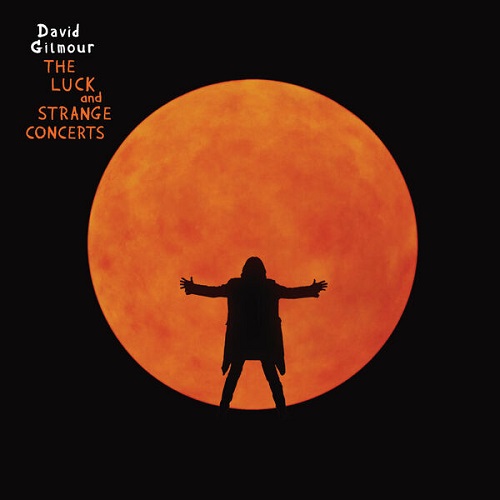
David Gilmour - The Luck And Strange Concert 2025
Исполнитель: David Gilmour Альбом: The Luck And Strange Concert Жанр: Progressive Rock, Psychedelic Rock Год: 2025 Страна: UK (Cambridge) Лейбл: Legacy Recordings Формат: FLAC (tracks) Official DR value: DR8 Разрядность: 24bit / 96kHz Stereo Размер: 2,6 GB Инфо: wiki Залито на: XFile (tracks) «Exclusive for Lossless-Galaxy»
16 10, 2025
Жанры
Lossless Galaxy Release
Русская музыка
--Поп
--Рок
--Панк
--Альтернатива
--Металл
--Рэп, Хип-Хоп, R'n'B
--Джаз и Блюз
--Фолк
--Шансон, Авторская песня
--СССР
Зарубежная музыка
--Pop
--Rock
--Hard Rock
--Progressive & Art-Rock
--Pop-Rock & Soft Rock
--Instrumental Rock
--Heavy, Traditional, Industrial Metal
--Power, Gothic, Sympho Metal
--Thrash, Speed, Groove, Modern Metal
--Death, Melodic Death, Doom, Dark Metal
--Black, Pagan, Folk, Viking Metal
--Alternative
--Punk
--Disco, Eurodance
--Rap, Hip Hop, R'n'B
--Reggae, Ska, Dub
--Jazz, Blues, Soul
--Folk, Country, Ethnic
--Electronic, Ambient, New Wave
--House, Techno, Trance
Другие жанры
--New Age, Relax, Meditative & Flamenco
--Chillout, Lounge, Downtempo, Trip-Hop
--Drum & Bass, Jungle, Breakbeat, IDM
--Classical / Классическая музыка
--Soundtrack
--Музыкальные сказки
Vinyl Rip
HI-Res / DVD-Audio / DTS
--SACD
--DSD
--DVD-Audio
Сборники Lossless-Galaxy
Альбомы 2022
Альбомы 2023
Альбомы 2024
Теги
1st Press 2022 2023 2024 2025 70... AOR Black Metal Blues Blues Rock Bootleg Series Classic Rock Death Metal Discography Exclusive for Lossless-Galaxy Folk Rock Fusion Hard Rock Heavy Metal Hi-Res Japanese Edition Jazz Jazz Rock lossless Melodic Death Metal Melodic Rock Modern Electric Blues Pop Pop Rock Power Metal Prog Rock Progressive Metal Progressive Rock Psych Rock Psychedelic Rock Rock SACD Symphonic Metal Thrash Metal Дискографии от KoGGaN
Архивы
Опрос
В каком формате хотели бы видеть релизы на сайте ?
 Автор: sirk, 3 апреля 2020, Комментариев: 0, Просмотров: 608
Автор: sirk, 3 апреля 2020, Комментариев: 0, Просмотров: 608Richard Last Group - Get Ready (1972) (1999)
Artist: Richard Last Group
Title Of Album: Get Ready
Year Of Release: 1972/1999
Label (Catalog#) : Akarma [AK 062]
Country: Italy
Genre: Prog Folk Rock
Quality: FLAC (*image + .cue,log,scans)
Bitrate: Lossless
Time: 00:36:20
Full Size: 224MB
Title Of Album: Get Ready
Year Of Release: 1972/1999
Label (Catalog#) : Akarma [AK 062]
Country: Italy
Genre: Prog Folk Rock
Quality: FLAC (*image + .cue,log,scans)
Bitrate: Lossless
Time: 00:36:20
Full Size: 224MB
Tracks:
-------
1. Sad And Deep As You (Mason) - 3:25
2. Eye To Eye (Werth-Williams) - 1:44
3. I Have A Dream (Werth, Williams) - 3:25
4. Dharma For One (Bunker, Anderson) - 4:22
5. He Has Gone Away (Richard) - 3:06
6. Confusion (Richard) - 1:53
7. Fire And Rain (J.Taylor) - 3:23
8. Break Down (R.Thomas) - 3:24
9. Lalena (Leich) - 4:09
10.Thank You (Stewart, Stone) - 2:30
11.Colour My World (Pankow) - 2:58
12.Naple In Rock (Richard) - 1:55
Personnel:
---------
Richard Coley (Maurizio Cal?) (vocals, piano, percussion)
Valerio Dal Passo (guitar)
Sandro Novarini (keyboards)
Paolo Ghirelli (flute, sax, vocals)
Alessandro Dal Toso (bass, vocals)
Walter Calloni (drums)
All thanks to original releaser
-------
1. Sad And Deep As You (Mason) - 3:25
2. Eye To Eye (Werth-Williams) - 1:44
3. I Have A Dream (Werth, Williams) - 3:25
4. Dharma For One (Bunker, Anderson) - 4:22
5. He Has Gone Away (Richard) - 3:06
6. Confusion (Richard) - 1:53
7. Fire And Rain (J.Taylor) - 3:23
8. Break Down (R.Thomas) - 3:24
9. Lalena (Leich) - 4:09
10.Thank You (Stewart, Stone) - 2:30
11.Colour My World (Pankow) - 2:58
12.Naple In Rock (Richard) - 1:55
Personnel:
---------
Richard Coley (Maurizio Cal?) (vocals, piano, percussion)
Valerio Dal Passo (guitar)
Sandro Novarini (keyboards)
Paolo Ghirelli (flute, sax, vocals)
Alessandro Dal Toso (bass, vocals)
Walter Calloni (drums)
All thanks to original releaser
Внимание! У Вас нет прав для просмотра скрытого текста.
Похожие новости:
Комментарии отсутствуют
Добавить комментарий!
Информация
Посетители, находящиеся в группе Гости, не могут оставлять комментарии к данной публикации.
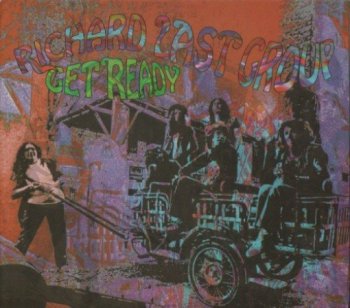

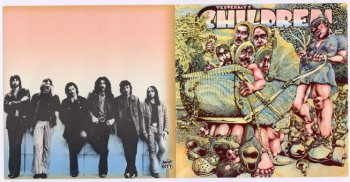
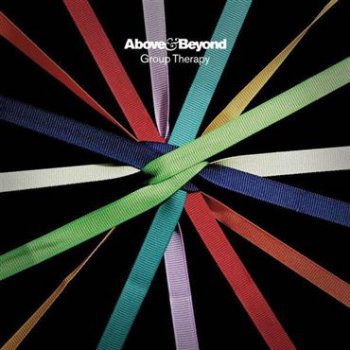
![Jeff Beck Group - Rough and Ready [DVD-Audio] (1972)](/uploads/posts/2014-02/1392049713_2jeff-beck-group-rough-and-ready-dvd-audio-1972.jpg)
